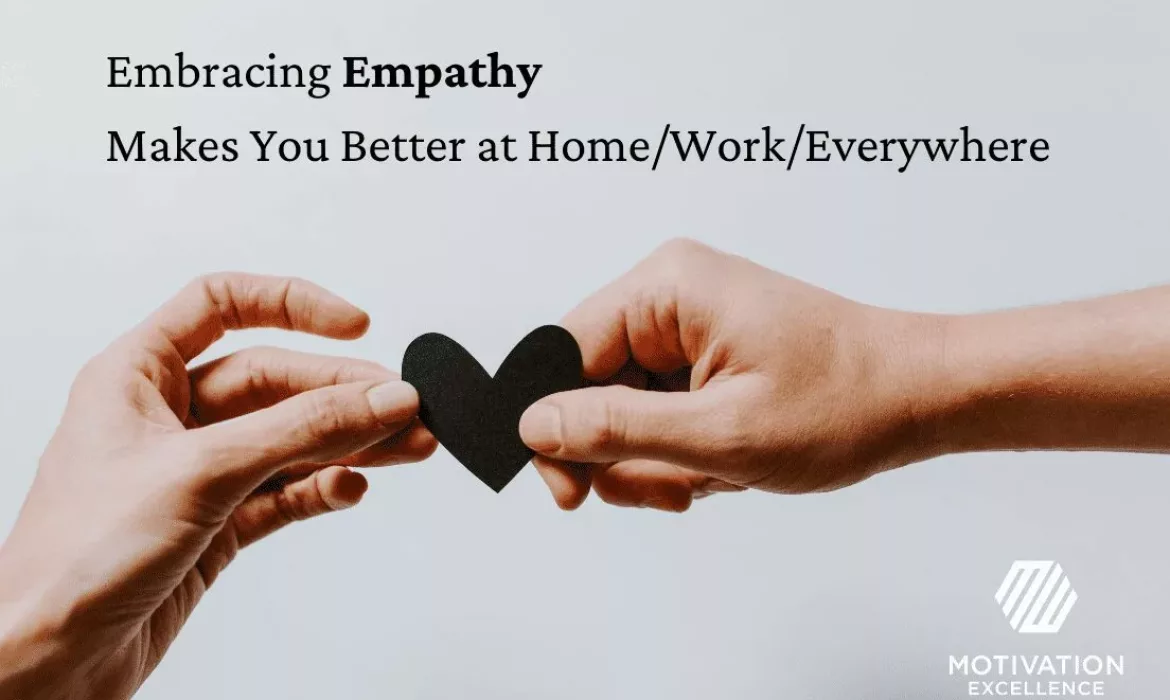
Photo credit: Kelly Sikkema / Unsplash
Can you feel it when there’s tension or frustration filling a room of your coworkers? Does hearing about a stranger’s brush with inequity rile up your anger? When your friend cries in front of you, do you tear up too? These are all examples of empathy, and no, not everyone can relate strongly to these examples, but to be a more successful person, growing your empathy reaction is important.
6Seconds.org will tell you that empathy means experiencing someone else’s feelings, while sympathy means understanding someone else’s feelings. It’s about tapping into your emotions rather than your brain. There’s a long distance between the two, but both have solid places in our society.
For a quick, and funny illustrated example, watch this Brené Brown video where she describes how using empathy helps create connections, while sympathy doesn’t.
How Empathetic Are You?
Empathy is a widely studied trait! According to GreaterGood.Berkeley.edu, research suggests that empathetic people lean toward being more generous, concerned about others and have happier relationships. They also tend to be better leaders and communicators. You can take the GreaterGood quiz (less than 30 questions) to see where you land on their empathy scale. This will give you a good read into where you can improve.
Not only does being empathetic help make you a better friend, it’s important to flex this skill at work too. TheBalanceCareers.com states a 2020 State of Workplace Empathy Study by Businessolver shows workplace empathy has stalled. The percentage of people (68%) who felt their organization was empathetic is the lowest in four years. 76% of respondents said an empathetic workplace inspires more employee motivation and 82% of CEOs say it has a positive impact on performance and productivity!
Becoming More Empathetic
The good news is you CAN LEARN to improve your empathy! (Really anyone can, it’s just naturally harder for some, especially if you have a medically diagnosed personality disorder.) This is great news since we know being more empathetic can lead to better relationships at home and at work.
There are many articles out there about habits you can incorporate to boost your empathy quotient. Be sure to visit some of our past blogs on EQ, Broadminded Thinking and Self-Awareness for similar tips for improvement.
Among the most commonly suggested ways to improve your empathy:
- Be an active listener & sharer
- Read fiction – it helps you step into someone else’s shoes
- Experience new things like travel, food and activities
- Be open to giving and receiving feedback
- Smile and use people’s names in conversation
- Learn about a different viewpoint and ask the why behind it
- Talk to strangers in safe environments
- Question your assumptions and judgements of others
As another GreaterGood.Berkeley.edu article suggests, we learned a lot in the 20th century about introspection. This century might well be best spent looking at how we connect with others to grow an even greater knowledge of the human experience.
One thing is for sure, people will remember how you make them feel and being more empathetic is a key way to make them feel heard, supported and uplifted!


